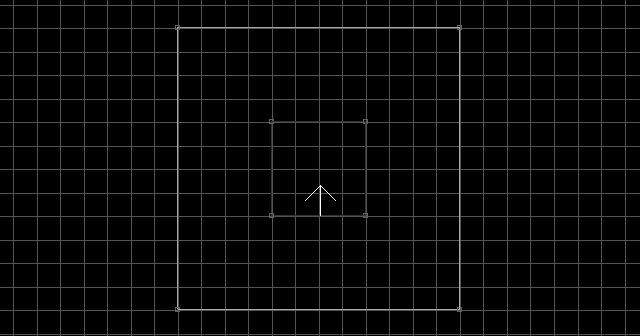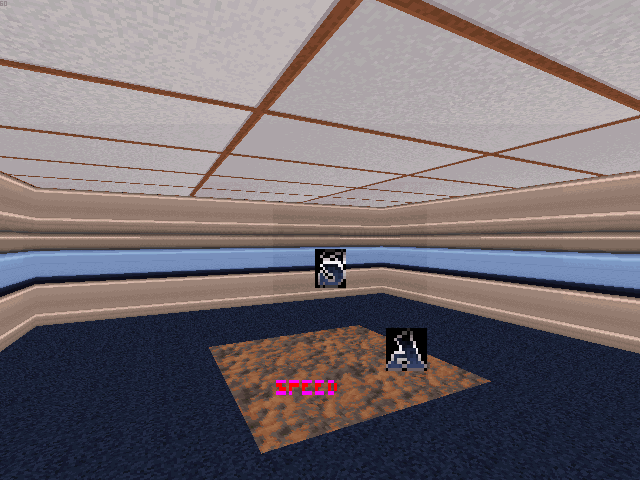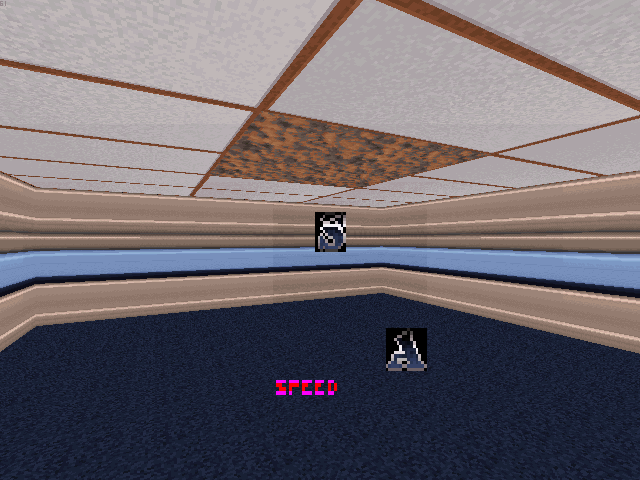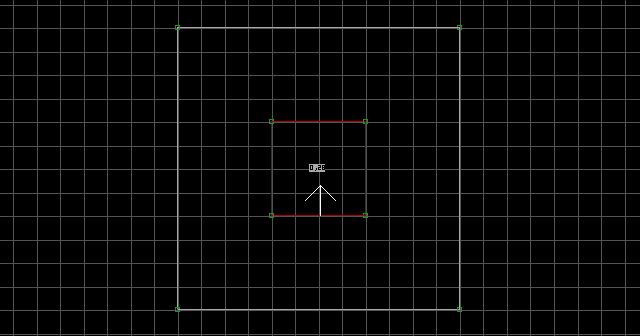There are a few different ways to move ceilings and floors, all of which will be explained here.
Raise or lower floor
The floor will raise or lower instantly when a trigger is activated.
Begin by making the sector with the floor you want to raise or lower. The height of the floor indicates its initial height.

Place the following sprites within the sector: S[0,31], A[0,Channel] (M[StopSound,StartSound], Speed[0,Speed]). Raise or lower the S to the height which you want the floor to move to when it's activated.

Place either a T[NumberOfActivations,Channel], or a Switch tagged [ActivationSound,Channel] somewhere in the map (to trigger the floor movement). NumberOfActivations is the number of times the Touchplate can trigger the floor (0 being infinite).
Note: If you angle the S so it faces down, the height manipulation will be reversed. The height of the S will indicate the floor's initial position, and the height of the floor itself will determine the floor's destination.
Raise or lower ceiling
The ceiling will raise or lower instantly when a trigger is activated.
Begin by making the sector with the ceiling you want to raise or lower. The height of the ceiling indicates its initial height.

Place the following sprites within the sector: S[0,32], A[0,Channel] (M[StopSound,StartSound], Speed[0,Speed]). Raise or lower the S to the height which you want the ceiling to move to when it's activated.

Place either a T[NumberOfActivations,Channel], or a Switch tagged [ActivationSound,Channel] somewhere in the map (to trigger the ceiling movement). NumberOfActivations is the number of times the Touchplate can trigger the ceiling (0 being infinite).
Note: If you angle the S so it faces down, the height manipulation will be reversed. The height of the S will indicate the ceiling's initial position, and the height of the ceiling itself will determine the ceiling's destination.
Raise floor after set delay
The floor will rise after a set delay when a trigger is activated. The floor will only rise once, and the message "activated" will be displayed. This effect was not used in the game.
Make the sector with the floor you want to raise. Tag it [0,28]. The height of the floor indicates its initial height.

Place the following sprites within the sector: S[Channel,21], A[0,Channel], Speed[0,DelaySpeed] (M[0,ActivationSound]). Channel can link two or more S sprites with a Lo-Tag of 21 (so they will activate together). Angle the S so it faces down (floor rise mode). Raise the S to the height which you want the floor to rise to when it's activated. DelaySpeed sets both the speed and the delay of the effect. The larger the number, the longer the delay and the faster the speed. A value of 50 works well.

Place either a T[0,Channel], or a Switch tagged [ActivationSound,Channel] somewhere in the map (to trigger the floor rise).
Ceiling fall after set delay
The ceiling will fall after a set delay when a trigger is activated. The ceiling will only fall once, and the message "activated" will be displayed. This effect was not used in the game.
Make the sector with the ceiling you want to lower. Tag it [0,28]. The height of the ceiling indicates its initial height.

Place the following sprites within the sector: S[Channel,21], A[0,Channel], Speed[0,DelaySpeed] (M[0,ActivationSound]). Channel can link two or more S sprites with a Lo-Tag of 21 (so they will activate together). Make sure the angle of the S is facing up (ceiling fall mode). Raise the S to the height which you want the ceiling to fall to when it is activated. DelaySpeed sets both the speed and the delay of the effect. The larger the number, the longer the delay and the faster the speed. A value of 50 works well.

Place either a T[0,Channel], or a Switch tagged [ActivationSound,Channel] somewhere in the map (to trigger the ceiling fall).
